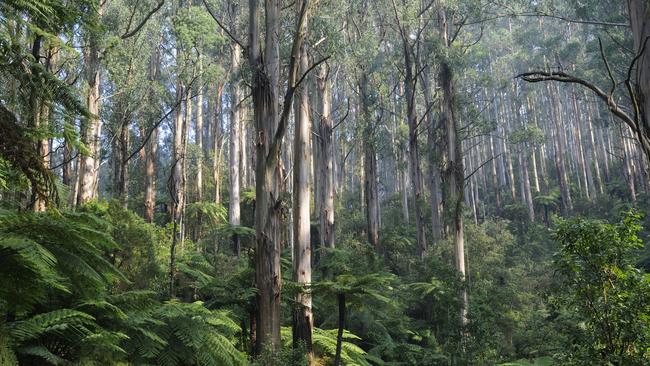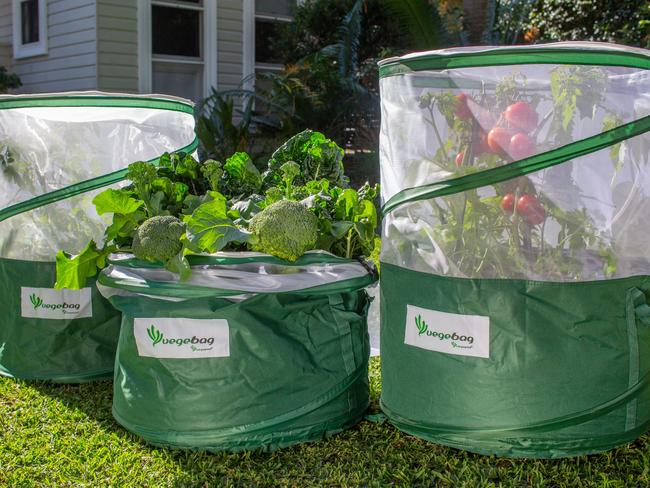Eucalypts: they’re magnificent, and they’re ours
There are 847 species of eucalypt in Australia. They’re a natural treasure, well deserving of their own national day on March 23.

With 847 species across the country, from alpine regions to the arid centre to rainforest edges, Eucalypts are a natural icon of Australia – well deserving of their own annual national day. On March 23, take a moment to consider what the world’s tallest flowering plants mean to our lives and hearts.
We use the common name eucalypts to include three botanical genera: Eucalyptus is the largest group, Corymbia covers the bloodwoods and Angophora species are closely related.
Western Australia’s 409 eucalypt species account for nearly half of the national total, says botanist and ecologist Dean Nicolle, creator of a specialist eucalypt arboretum at Currency Creek in South Australia, the largest such collection in the world. NSW/ACT has 244, Queensland 226, Victoria 108, and Northern Territory and South Australia slightly fewer. Tasmania has 33 endemic species.
Our current record holder for height is a 100m-tall Eucalyptus regnans named “Centurion” in Tasmania, although a 114m giant was felled in Victoria in 1880. Eucalypt flowers provide food for bees, birds and some mammals. Most flowers are white or cream but there are pink, red, orange, yellow, lime and purple species. It’s the stamens - the male parts - that carry the colour.
The volatile compounds that gum trees emit create the familiar eucalyptus smell that can make us homesick. They are also responsible for the blue haze of the Blue Mountains in NSW, especially on hot summer days when a compound called isoprene causes a chemical reaction in the atmosphere. Gum leaves are packed with oil glands that you can see if you hold a leaf up to the light. Some species smell more of peppermint (E. radiata); others are lemony (Corymbia citriodora).
Two books I’ve loved are about eucalypts. Murray Bail’s unforgettable novel Eucalyptus, which won the Miles Franklin Award in 1999, is the story of an eccentric man who plants every eucalypt species on his property; it’s also a modern fairy tale regarding his beloved daughter, brilliantly told. And Ashley Hay’s Gum: The Story Of Eucalypts and Their Champions is environmental writing at its best, putting eucalypts into the context of our history and exploring how these trees helped shape our identity.
“Eucalypts are a significant aspect of our natural environment,” says Linda Baird, CEO of Eucalypt Australia, a charitable trust that supports eucalypt conservation, education, promotion and research. “To get everyone talking about eucalypts and celebrate them in all their diversity we hold National Eucalyptus Day, as well as a photography competition, and a public vote for Eucalypt of the Year.” The charity is the result of a generous bequest by Bjarne K Dahl, a Norwegian-born forest assessor of enormous vision and energy who fell in love with Australia and our eucalypts. His story is a fascinating read on the organisation’s website.
Q&A
My potato plants didn’t flower the last two years – although the crops were reasonable. Does flowering affect the final crop? Dani Chatfield, Mt Macedon, Vic
The flowering of potato plants depends on environmental conditions and isn’t important for crops. Studies show removing flowers can increase tuber production because it stops energy being spent on flowering and fruit.
Is it OK to use the diluted liquid that drains from my worm farm? Pauline Smith, Brisbane
Unlike worm tea (made by steeping worm castings in water), leachate drained from the worm farm base can contain harmful pathogens as it washes through partially decomposed matter. Its quality is variable; if it smells bad don’t use it, but otherwise dilute it to the colour of weak tea and use it in the garden, not on pot plants or vegies.
In the heat, is it good to water pot plants with iced water? Linda Nathaniel, Sydney
The coldness of it doesn’t matter (iced water quickly heats up anyway). Misting plants with water sprays helps keep them cool and increases humidity, which most indoor plants prefer. Grouping pots together helps too.

Send your questions to: helenyoungtwig@gmail.com or Helen Young, PO Box 3098, Willoughby North, NSW 2068. Website: helenyoung.com.au. The best question for March wins two self-watering, mesh protected Vegebags worth $178 from vegepod.com.au




To join the conversation, please log in. Don't have an account? Register
Join the conversation, you are commenting as Logout